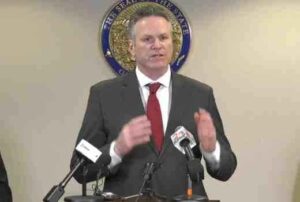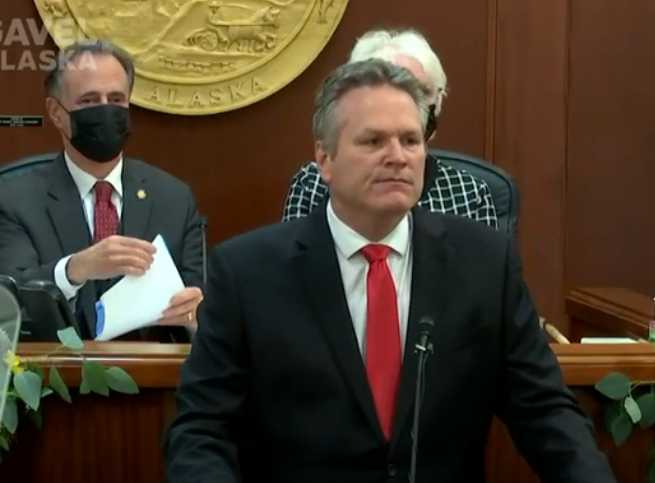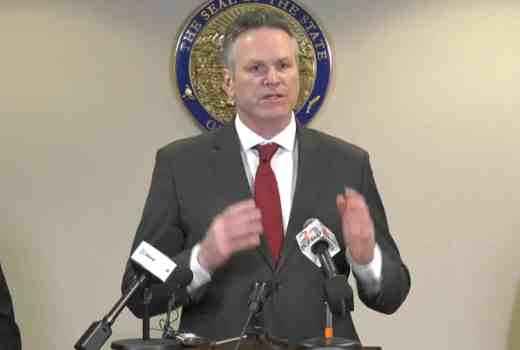
(Juneau) – Wednesday Governor Mike Dunleavy issued Administrative Order 331 establishing the Alaska Food Security and Independence Task Force. Alaska currently imports 95 percent of its food supplies at a cost of $2 billion per year. The global pandemic triggered supply chain disruptions on the West Coast of the United States that continue to impact the regular delivery of food and other essential goods to Alaska. The 18 member task force will be responsible for recommendations on how to increase all types of food production and harvesting in Alaska, and to identify any statutory or regulatory barriers preventing our state from achieving greater food security.
“Over the past two years Alaskans have walked into grocery stores and been greeted by row after row of empty shelves,” said Governor Dunleavy. “One of the lessons the pandemic taught us is how vulnerable Alaska could be if the regularly scheduled shipments of food shipped up from Seattle were to suddenly stop – even a few days. The good news is Alaska has tremendous potential to grow, harvest and catch more nutritious food for in-state consumption. The recommendations from the task force will draw a roadmap for my administration, legislators and Alaska’s food producers to make Alaska more food secure the next time the supply chain is disrupted.”
The task force will have ten main duties and responsibilities:
- Provide recommendations that increase the procurement and use of Alaska-sourced foods within State and local agencies, institutions, and schools, including any administrative and statutory changes that are required.
- Identify barriers that farmers, stock growers, fishermen, mariculture professionals, and others engaged in the growing, harvesting, or raising of food, face when starting a business or getting their products into the Alaska market. Provide recommendations on how the State can address those obstacles, including through administrative or statutory changes.
- Assess the levels of wild game and fish harvests in Alaska. Suggest measures that would increase the abundance and harvest of wild game, fish, and food by Alaskans.
- Recommend a program to assist communities and households impacted by fishery shortfalls and disasters.
- Identify factors, including regulatory or statutory burdens, that might discourage or prevent locally harvested and produced food from being purchased by federal, state, and local agencies, institutions, and schools.
- Identify research needed to support and encourage increased consumption and production of Alaska-sourced food within the state.
- Engage with the public to seek additional input on ways to promote the above listed goals.
- Assess the need for disaster food caches within the State; and how the caches can be developed utilizing Alaskan-sourced foods.
- Provide a report and summary of findings and recommendations, including what administrative and statutory changes would be needed to accomplish the recommendations of the Task Force.
- The Chair of the Task Force shall report regularly to the Office of the Governor on activities conducted and issues that arise under this Order.
The task force will be made up of 16 voting members. Twelve Alaskans representing a cross section of the state’s farming, mariculture and seafood industries and four state commissioners (Natural Resources, Fish and Game, Environmental Conservation, Military and Veterans Affairs) or their designees will serve on the board. Two ex-officio members from the Alaska House of Representatives and the Alaska State Senate are to be appointed by the Senate President and the Speaker of the House.
The AO requests, but does not require, the two legislators be current members of the Alaska Grown Legislative Caucus.
The Task Force will issue a report on its findings and recommendations on or before September 1, 2022.
###







